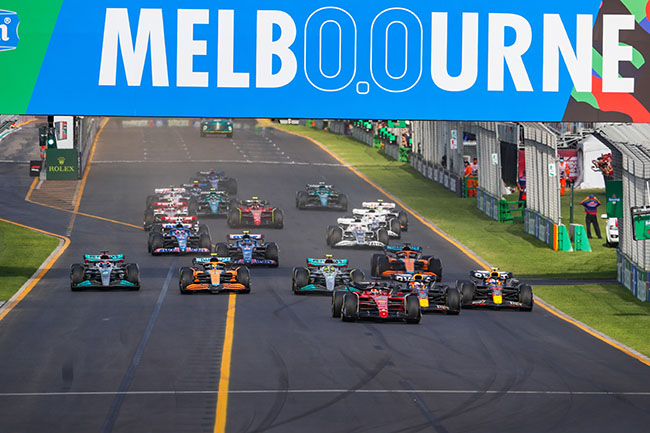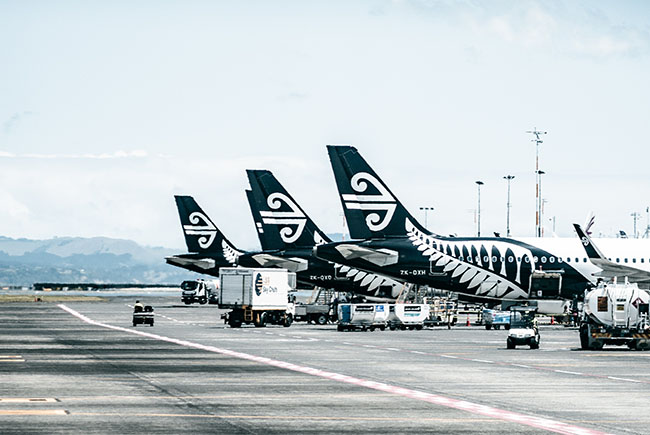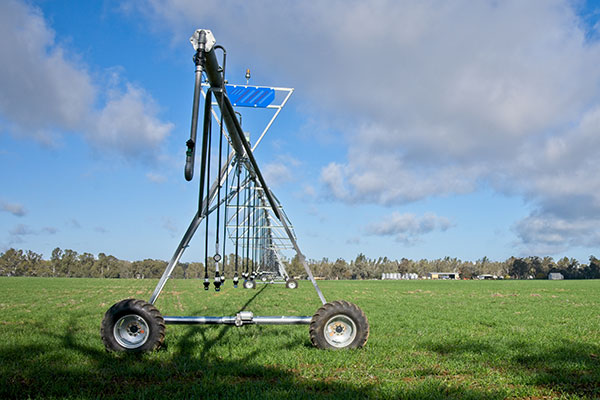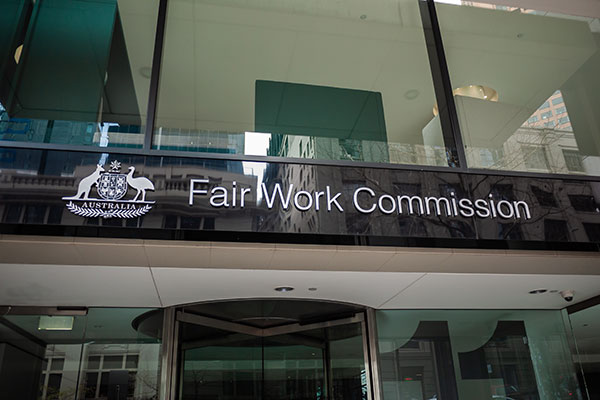Selected
- Details
- Written by Grant Broadcasters
- Category: Selected
- Hits: 98

Action during the Formula 1 Heineken Australian Grand Prix 2022 in Melbourne (Photo by Antonin Vincent/DPPI / ipa-agenc/Sipa USA)
The Australian Grand Prix will remain in Melbourne until at least 2035 with Formula One extending its contract for another 10 years.
From next year, feeder series Formula 2 and Formula 3 racing will also be added to the event.
Australian GP organisers have also committed to upgrading the paddock and pit lane.
The contract had been due to expire in 2025 but the new agreement will extend the race's time at Albert Park to 40 years.
It caps off a wildly successful return for F1 in Melbourne this April, after a two-year hiatus due to the coronavirus pandemic.
This year's estimated attendance at Albert Park reached 419,000 across the four days, the largest crowd for a weekend sporting spectacle in Australian history.
"I am delighted to confirm that Melbourne and the Albert Park circuit will continue to be on the Formula One calendar until 2035," F1 president and CEO Stefano Domenicali said in a statement.
"The race has always been a favourite for the fans, drivers and the teams and Melbourne is an incredible and vibrant international city that is a perfect match for our sport."
The event moved from South Australia to Victoria in 1996 and has been a fixture on the F1 calendar ever since.
"The resounding popularity of the Formula One Australian Grand Prix for over two decades stepped up to a new level in 2022 and the addition of F2 and F3 means that future events will continue to offer new races for fans to enjoy," Australian Grand Prix Corporation chairman Paul Little said in a statement.
Motorsport Australia also welcomed the decision to lock in the Melbourne race long-term.
The Australian GP used to be the season opener but Bahrain has held that honour over the past two years.
F1 is yet to confirm its competition schedule for next year but is aiming for 24 events on the schedule.
Las Vegas and Qatar are already locked in for 2023 while the South African Grand Prix in Kyalami could return next year.
The French GP at the Paul Ricard Circuit will be dropped after next month's race.
© AAP 2022
- Details
- Written by Grant Broadcasters
- Category: Selected
- Hits: 117

In the hope of luring more tourists, New Zealand is ditching a requirement for travellers to produce a negative COVID-19 test before arriving in the country.
On Thursday, COVID-19 Minister Ayesha Verrall announced New Zealand's pre-departure testing regime would be axed for all arrivals as of Tuesday June 21.
Unvaccinated travellers will also be able to enter New Zealand without quarantining for the first time during the pandemic.
The government's shift comes ahead of the opening weekend of the ski season, with lifts now turning at South Island resorts following a large snow dump last week.
The move follows a similar shift from Australia in April, and the United States earlier this month.
Tourism figures have welcomed the move, suggesting tourists were choosing to travel to places like Australia which do not have pre-departure testing, which can be costly and logistically challenging.
Dr Verrall said the government believed "the challenges pre-departure tests pose to visitors are now no longer outweighed by the public health benefits".
"Factors such as the availability of and cost of getting a test are increasingly becoming a barrier for people intending to travel here, especially as other countries wind back testing availability or the requirement for a test on entry themselves," she said.
International arrivals will still need to complete two rapid antigen tests after landing in New Zealand as the government tracks new variants.
Dr Verrall said post-arrival testing was currently producing a two to three per cent positivity rate.
The shift cements a major policy shift from Jacinda Ardern's government, which was once the most health-focussed country in the developed world.
New Zealand relentlessly chased an elimination strategy earlier in the pandemic, locking out COVID-19 for much of the first two years.
However, the arrival of the Omicron variant earlier this year proved a game-changer, with New Zealand gradually relenting on many measures such as mandatory quarantine, contact tracing and vaccine mandates.
Mask mandates remain for many indoor settings in New Zealand, including public transport and retail.
COVID-19 cases in New Zealand remain doggedly high but on the decrease.
The seven-day rolling average of cases is at 5777, down from 6035 last week, and well down from the peak of over 20,000 daily cases experienced in March.
On Wednesday, there were 11 COVID-related deaths, with a seven-day rolling average is 13.
At the start of the year, New Zealand had suffered roughly 50 COVID-related deaths during the entire pandemic.
That death toll now stands at 1359.
Dr Verrall said New Zealand was ready to relax the pre-departure testing requirement ahead of a planned July 31 shift.
"We've taken a careful and staged approach to reopening our borders to ensure we aren't overwhelmed with an influx of COVID-19 cases," she said.
"Our strategy has worked and as a result it's safe to lift pre-departure test requirements much sooner than planned."
© AAP 2022
Photo by Douglas Bagg on Unsplash
- Details
- Written by Grant Broadcasters
- Category: Selected
- Hits: 117

South Australian Murray River irrigators will get their full water entitlements from July after good inflows over the past three months.
Wet conditions across the Murray-Darling Basin have lifted storage levels to 94 per cent, well above long-term averages for June.
Recent rains also mean irrigators won't need to draw as much water from the Murray as they would in drier periods.
"I'm pleased that the state's water users will begin this water year with the security of a full allocation," Climate, Environment and Water Minister Susan Close said on Wednesday.
"Much of our state's prosperity and environmental sustainability comes from the River Murray which is why our government is committed to making the Murray a priority for South Australia again."
Ms Close said despite recent rain, South Australia had still only received two gigalitres of the 450GL promised under the Murray-Darling Basin Plan.
In response, she said the state Labor government would reverse the former Liberal government's endorsement of complex efficiency measures which only benefitted upstream states.
© AAP 2022
- Details
- Written by Grant Broadcasters
- Category: Selected
- Hits: 119

FAIR WORK COMMISSION MINIMUM WAGE DECISION
KEY DETAILS:
* The national minimum wage will rise by 5.2 per cent, or $40 a week, to help Australia's lowest-paid workers keep up with rising living costs.
* The new wage will be $812.60 a week, or $21.38 an hour, effective from July 1.
* A slightly lower increase of 4.6 per cent will apply for those on modern award wages from July 1.
* However, aviation, tourism and hospitality sector workers won't get their pay increases until October 1.
* Fair Work Commission president Iain Ross says the commission has proposed a proportionately higher increase for low-paid workers because of existing and growing inflationary pressures.
* A real wage cut for some workers will be addressed in subsequent reviews.
REASONING
* Inflation is eroding the ability of low-paid workers to keep up with the cost of living.
* Non-discretionary components of the consumer price index, including basic food staples, increased by 6.6 per cent over the year ended March.
* The strength of the labour market, low unemployment and sharp rise in living costs mean the wage rises "will not have a significant adverse effect on the performance and competitiveness of the national economy".
Source: Fair Work Commission
© AAP 2022
Photo: Shuang Li/shutterstock.com
Page 29 of 191
